EP 916 What Would America Do Without Foreign Born Doctors? We May Find Out
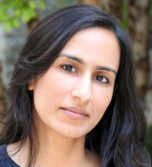 For more than sixty years, the United States has trained fewer physicians than it needs. It is expensive and time-consuming to educate a new doctor, and much more expedient to bring immigrant doctors trained in other countries. And that’s what we’ve done. This all began, in earnest, with the passage of the Hart-Celler Immigration and Nationality Act of 1965 which expedited the entry of foreign medical graduates (FMG’s) from postcolonial South Asia and sent them to provide care in shortage areas throughout the United States. I, myself, have benefited, and do today, from their care. In fact, one out of 4 doctors practicing in the United States came from other parts of the world. It was never an easy road for them, but they have filled a vital need for America. Yet, today, with a less than welcoming attitude, it’s hard to know what the future holds and its impact on all of us. To discuss this important subject is Eram Alam, Ph.D, and Associate Professor in the Department of the History of Science at Harvard University. She is the author of “The Care of Foreigners: How Immigrant Physicians Changed US Healthcare.”
For more than sixty years, the United States has trained fewer physicians than it needs. It is expensive and time-consuming to educate a new doctor, and much more expedient to bring immigrant doctors trained in other countries. And that’s what we’ve done. This all began, in earnest, with the passage of the Hart-Celler Immigration and Nationality Act of 1965 which expedited the entry of foreign medical graduates (FMG’s) from postcolonial South Asia and sent them to provide care in shortage areas throughout the United States. I, myself, have benefited, and do today, from their care. In fact, one out of 4 doctors practicing in the United States came from other parts of the world. It was never an easy road for them, but they have filled a vital need for America. Yet, today, with a less than welcoming attitude, it’s hard to know what the future holds and its impact on all of us. To discuss this important subject is Eram Alam, Ph.D, and Associate Professor in the Department of the History of Science at Harvard University. She is the author of “The Care of Foreigners: How Immigrant Physicians Changed US Healthcare.”
Podcast: Play in new window | Download
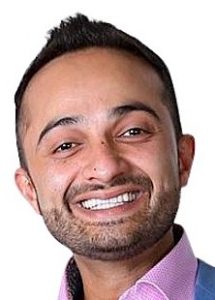 Bitcoin had been a bit player as people designed their financial portfolios. Investors would ask ‘is this a scam and am I chasing the latest shiny object?’ But today it seems as if cryptocurrency and the blockchain technology that undergirds it is getting newfound respect. The second Trump Administration has passed The Genius Act and pronounced openly its support of digital currency (and the Trump family has profited from it to what’s reported as $2.9 billion). So how should we, as individual investors, take stock of the growing options available in cryptocurrency purchasing and its inclusion in standard issue mutual funds and ETF’s? While some may not want to be left behind if it is the next big thing, others might take a more cautious approach. In this podcast, I ask Vijay Marolia, a seasoned money manager and the Chief Investment Officer of Regal Point Capital, to walk us through this new world and explain if we can believe what is very hard to see–digital currency.
Bitcoin had been a bit player as people designed their financial portfolios. Investors would ask ‘is this a scam and am I chasing the latest shiny object?’ But today it seems as if cryptocurrency and the blockchain technology that undergirds it is getting newfound respect. The second Trump Administration has passed The Genius Act and pronounced openly its support of digital currency (and the Trump family has profited from it to what’s reported as $2.9 billion). So how should we, as individual investors, take stock of the growing options available in cryptocurrency purchasing and its inclusion in standard issue mutual funds and ETF’s? While some may not want to be left behind if it is the next big thing, others might take a more cautious approach. In this podcast, I ask Vijay Marolia, a seasoned money manager and the Chief Investment Officer of Regal Point Capital, to walk us through this new world and explain if we can believe what is very hard to see–digital currency.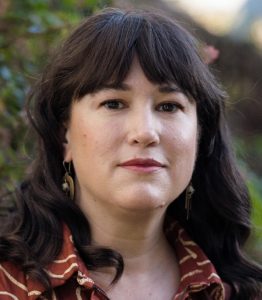 Many of us are unwitting victims of the private equity industry. Some by virtue of being employed by companies they have bought whose future success or failure may have no impact on the private equity firm’s ability to profit from the leveraged buyout of those companies. In her new book, “Bad Company: Private Equity and the Death of the American Dream, ” journalist Megan Greenwell takes a deep dive into the lives of four such people–including a Toys R Us floor supervisor, a Wyoming doctor, a Virginia housing advocate and a Texas journalist. Megan herself began a journalistic journey to understand this financial behemoth because her own on-line sports project, Deadspin, was taken over by private equity and run into the ground, after having had great success. We will explain how this industry achieves the results that it does for the owners of the private equity firms, the reach it is having into all sectors of our economy and your need to be aware of how it may affect you.
Many of us are unwitting victims of the private equity industry. Some by virtue of being employed by companies they have bought whose future success or failure may have no impact on the private equity firm’s ability to profit from the leveraged buyout of those companies. In her new book, “Bad Company: Private Equity and the Death of the American Dream, ” journalist Megan Greenwell takes a deep dive into the lives of four such people–including a Toys R Us floor supervisor, a Wyoming doctor, a Virginia housing advocate and a Texas journalist. Megan herself began a journalistic journey to understand this financial behemoth because her own on-line sports project, Deadspin, was taken over by private equity and run into the ground, after having had great success. We will explain how this industry achieves the results that it does for the owners of the private equity firms, the reach it is having into all sectors of our economy and your need to be aware of how it may affect you.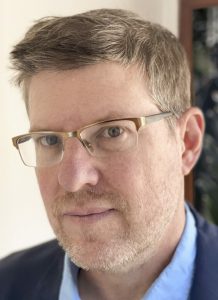 It is said that we are in the midst of the sixth great extinction. Thus, we have taken some steps to protect endangered species–but clearly not enough. And while the stories we usually tell ourselves about global warming tend to focus on the damage inflicted on human societies by big storms, severe droughts, and rising sea levels, the most powerful impacts are being felt by the natural world and its many species. Our guest, naturalist and author, Adam Welz, decided to write “The End of Eden” in order to engage people on climate in a way that might break through. In the book, he describes the effects it’s having on moose in Maine, parrots in Puerto Rico, cheetahs in Namibia and the birds in your backyard. In a nuanced way, he tries to remind us that our fragile ecosystem and all creatures great and small are suffering. It’s a compelling wake up call.
It is said that we are in the midst of the sixth great extinction. Thus, we have taken some steps to protect endangered species–but clearly not enough. And while the stories we usually tell ourselves about global warming tend to focus on the damage inflicted on human societies by big storms, severe droughts, and rising sea levels, the most powerful impacts are being felt by the natural world and its many species. Our guest, naturalist and author, Adam Welz, decided to write “The End of Eden” in order to engage people on climate in a way that might break through. In the book, he describes the effects it’s having on moose in Maine, parrots in Puerto Rico, cheetahs in Namibia and the birds in your backyard. In a nuanced way, he tries to remind us that our fragile ecosystem and all creatures great and small are suffering. It’s a compelling wake up call.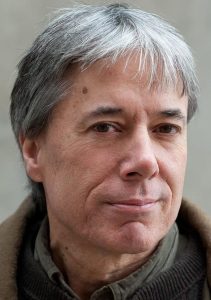 It can be hard to explain how the actions of the top .01 percent have severe consequences for the rest of us, but in his book, “Burned by Billionaires,” Chuck Collins of the Institute for Policy Studies, lays it out chapter and verse. He demonstrates through words and charts how the rest of us pay more in taxes, get less in services, find housing unaffordable and get news increasingly skewed by the ownership of important sources by the richest among us. As you listen to this podcast, you will better grasp how the highest income concentration in the last 100 years results in tax shifting from wealth to work and that this phenomenon has been building from the 1970’s on to a tipping point today. Our vast political swings each cycle show an electorate trying to find someone who can make the system work for them, while the billionaires huddle with their advisors and our elected leaders to disrupt the game board for their advantage. It all makes sense when our guest describes concepts like the wealth pump and how the financialization of our economy takes money away from pursuits that can benefit us all. It’s a must listen.
It can be hard to explain how the actions of the top .01 percent have severe consequences for the rest of us, but in his book, “Burned by Billionaires,” Chuck Collins of the Institute for Policy Studies, lays it out chapter and verse. He demonstrates through words and charts how the rest of us pay more in taxes, get less in services, find housing unaffordable and get news increasingly skewed by the ownership of important sources by the richest among us. As you listen to this podcast, you will better grasp how the highest income concentration in the last 100 years results in tax shifting from wealth to work and that this phenomenon has been building from the 1970’s on to a tipping point today. Our vast political swings each cycle show an electorate trying to find someone who can make the system work for them, while the billionaires huddle with their advisors and our elected leaders to disrupt the game board for their advantage. It all makes sense when our guest describes concepts like the wealth pump and how the financialization of our economy takes money away from pursuits that can benefit us all. It’s a must listen.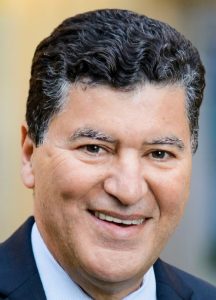 America has many challenges in the health industry. And while our guest, who came to America as an immigrant, wanted desperately to be part of what he considered to be ‘the best medical system in the world’ back in 1975, he no longer holds that view. He says that our system has become too politicized, with too many intermediaries and has a one size fits all approach which is not serving this large country well. In his book, “Disease Knows No Politics”, Dr. Elias Zerhouni, former Director of the National Institutes of Health (NIH), shares thoughtful reflections on his profession as well as compelling stories about his immigrant past. In this podcast, we touch on all manner of issues in health care, from what went wrong during the pandemic, the importance of the NIH and university settings for making America the leader in health care innovation and the large role immigrants play in our healthcare system. Listening to Dr. Zerhouni is like being back in one of the best classrooms of your past. He’s clear, precise and so well informed on these issues.
America has many challenges in the health industry. And while our guest, who came to America as an immigrant, wanted desperately to be part of what he considered to be ‘the best medical system in the world’ back in 1975, he no longer holds that view. He says that our system has become too politicized, with too many intermediaries and has a one size fits all approach which is not serving this large country well. In his book, “Disease Knows No Politics”, Dr. Elias Zerhouni, former Director of the National Institutes of Health (NIH), shares thoughtful reflections on his profession as well as compelling stories about his immigrant past. In this podcast, we touch on all manner of issues in health care, from what went wrong during the pandemic, the importance of the NIH and university settings for making America the leader in health care innovation and the large role immigrants play in our healthcare system. Listening to Dr. Zerhouni is like being back in one of the best classrooms of your past. He’s clear, precise and so well informed on these issues. While the ideal of the American woman was to be skinny, now they need to be skinny and have a glow acquired through some combination of daily yoga, vegan makeup and mushroom coffee or tea. Gwyneth Paltrow’s company, GOOP, in many ways best exemplifies this growing industry which rakes in about $5.6 trillion a year with products advertised on-line, by influencers and by more conventional media outlets. Products and services are involved which are said to improve all aspects of your life from colonics to charcoal toothpaste to green juice enemas. While the FDA may not be referenced as having sanctioned these products (and what does the FDA sanction anymore) what was once considered the domain of the rich has become aspirational for the mainstream and many ‘wellness’ branded products can be found under such a label at Walmart, no less. It’s a fascinating topic explored critically in Amy Larocca’s new book, “How to be Well: Navigating Our Self-Care Epidemic, One Dubious Cure at a Time.” Amy joins us today to discuss.
While the ideal of the American woman was to be skinny, now they need to be skinny and have a glow acquired through some combination of daily yoga, vegan makeup and mushroom coffee or tea. Gwyneth Paltrow’s company, GOOP, in many ways best exemplifies this growing industry which rakes in about $5.6 trillion a year with products advertised on-line, by influencers and by more conventional media outlets. Products and services are involved which are said to improve all aspects of your life from colonics to charcoal toothpaste to green juice enemas. While the FDA may not be referenced as having sanctioned these products (and what does the FDA sanction anymore) what was once considered the domain of the rich has become aspirational for the mainstream and many ‘wellness’ branded products can be found under such a label at Walmart, no less. It’s a fascinating topic explored critically in Amy Larocca’s new book, “How to be Well: Navigating Our Self-Care Epidemic, One Dubious Cure at a Time.” Amy joins us today to discuss.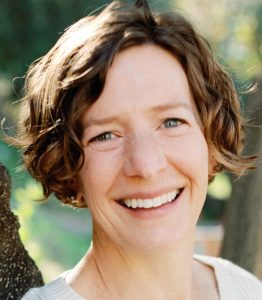 Refrigeration is considered to be the most impactful invention in the history of food and drink. And while we focus on our personal refrigerators there is an entire ‘cold chain’ of cold storage warehouses, shipping containers, trucks, and display cases, keeping foodstuffs fresh until we can purchase them. It’s a labyrinth never documented in the way that Nicola Twilley, our guest, and the author of “Frostbite: How Refrigeration Changed Our Food, Our Planet, and Ourselves” has done in her meticulously researched book. There are stunning statistics in the book, including the fact that three quarters of the food Americans eat has been refrigerated and the American family opens the refrigerator 107 times a day on average. And like many technological advances that have made life easier and better with, say, the ability to eat tomatoes in the winter in New England, there are downsides, which threaten the actual growth of those plants in no small part because of the mechanics of cooling and its contributions to global warming. It’s a fascinating story and we present it to you today.
Refrigeration is considered to be the most impactful invention in the history of food and drink. And while we focus on our personal refrigerators there is an entire ‘cold chain’ of cold storage warehouses, shipping containers, trucks, and display cases, keeping foodstuffs fresh until we can purchase them. It’s a labyrinth never documented in the way that Nicola Twilley, our guest, and the author of “Frostbite: How Refrigeration Changed Our Food, Our Planet, and Ourselves” has done in her meticulously researched book. There are stunning statistics in the book, including the fact that three quarters of the food Americans eat has been refrigerated and the American family opens the refrigerator 107 times a day on average. And like many technological advances that have made life easier and better with, say, the ability to eat tomatoes in the winter in New England, there are downsides, which threaten the actual growth of those plants in no small part because of the mechanics of cooling and its contributions to global warming. It’s a fascinating story and we present it to you today.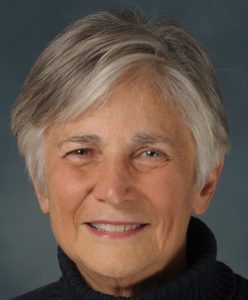 Diane Ravitch, Ph.D, is a historian of education. For decades now, she has written, lectured and been interviewed about her views on a range of subjects related to education reform, including standardized testing, vouchers, charter schools and accountability. Early on, she was a proponent of all of the above. She was part of the leadership team in George H. W. Bush’s education department. While her views were categorized as conservative or neoconservative throughout the 1980’s and 1990’s on these subjects, at the start of this century her scholarship brought her to a different place on virtually all that she had previously espoused. It is hard to imagine how difficult it was to admit she was wrong, having been so public, and influential, in her views. In the end, she came to a few simple, but profound, conclusions–public monies are for public schools, family wealth is the greatest determinant of student achievement, and adherence to color-blind policies assures that the status quo remains in place. She also believes that the No Child Left Behind effort, and other modern reforms, measure only certain skills in reading and math, but leave other important subjects in a lesser tier. And that in the end, it is content–narratives and stories–not skills, that ignites the love of learning. In her latest book, “An Education: How I Changed My Mind About Schools and Almost Everything Else,” Ravitch is unsparing in sharing both the incredible changes she has undergone throughout her life and in how she now views her life’s work
Diane Ravitch, Ph.D, is a historian of education. For decades now, she has written, lectured and been interviewed about her views on a range of subjects related to education reform, including standardized testing, vouchers, charter schools and accountability. Early on, she was a proponent of all of the above. She was part of the leadership team in George H. W. Bush’s education department. While her views were categorized as conservative or neoconservative throughout the 1980’s and 1990’s on these subjects, at the start of this century her scholarship brought her to a different place on virtually all that she had previously espoused. It is hard to imagine how difficult it was to admit she was wrong, having been so public, and influential, in her views. In the end, she came to a few simple, but profound, conclusions–public monies are for public schools, family wealth is the greatest determinant of student achievement, and adherence to color-blind policies assures that the status quo remains in place. She also believes that the No Child Left Behind effort, and other modern reforms, measure only certain skills in reading and math, but leave other important subjects in a lesser tier. And that in the end, it is content–narratives and stories–not skills, that ignites the love of learning. In her latest book, “An Education: How I Changed My Mind About Schools and Almost Everything Else,” Ravitch is unsparing in sharing both the incredible changes she has undergone throughout her life and in how she now views her life’s work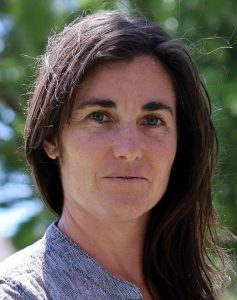 While we might think that ambulances are always involved in step on the gas exercises–get the paddles out, extricate from a car wreck or save from the effects of a heart attack, in truth there are many folks in the ambulance because they’ve run out of luck and have no one to call, excepting 9-1-1, for just the bad fortunes of life–an imminent eviction notice or the lack of food And as long as emergency services answer all calls, the bulk of the work of ambulance drivers and technicians will never be only about life-threatening emergencies. This is one of the many revelations you’ll find in Joanna Sokol’s work memoir, “A Real Emergency: Stories from the Ambulance.” While she documents the low pay and difficult working conditions, we are reminded that it’s the only medical care that is not first mediated by the medical bureaucracy–particularly insurance considerations. The ambulance arrives and off you go. In the end, someone has to pay for the service but given the many ways that ambulance services are owned and operated, it’s a hard business to make a profit from. Riding in that ambulance, Sokol reminds us, you can discern a lot about what America cares about and who is often left behind.
While we might think that ambulances are always involved in step on the gas exercises–get the paddles out, extricate from a car wreck or save from the effects of a heart attack, in truth there are many folks in the ambulance because they’ve run out of luck and have no one to call, excepting 9-1-1, for just the bad fortunes of life–an imminent eviction notice or the lack of food And as long as emergency services answer all calls, the bulk of the work of ambulance drivers and technicians will never be only about life-threatening emergencies. This is one of the many revelations you’ll find in Joanna Sokol’s work memoir, “A Real Emergency: Stories from the Ambulance.” While she documents the low pay and difficult working conditions, we are reminded that it’s the only medical care that is not first mediated by the medical bureaucracy–particularly insurance considerations. The ambulance arrives and off you go. In the end, someone has to pay for the service but given the many ways that ambulance services are owned and operated, it’s a hard business to make a profit from. Riding in that ambulance, Sokol reminds us, you can discern a lot about what America cares about and who is often left behind.